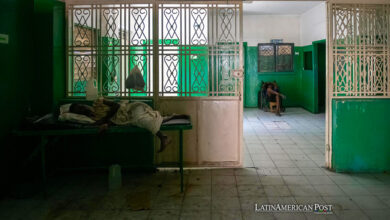Is Latin America ready for the COVID-19 vaccine?
Logistical problems and access to equipment are the main challenges that the region will have to face for vaccination against COVID-19.

The arrival of the vaccine in Latin America supposes failures in the logistics to apply it to the entire population. / Photo: Freepik
LatinAmerican Post | Santiago Gómez Hernández
Escucha este artículo
Leer en español: ¿Latinoamérica está preparada para la vacuna contra el COVID-19?
The news of the approval of the Pfizer-BioNTech COVID-19 vaccine in the UK comes like the light at the end of the tunnel that the world has been waiting for. The British are expected to start their vaccination program in December and then other countries will follow.
However, the date to start vaccinating in Latin America is uncertain due to the scientific approvals of each State. All countries have reached agreements with the pharmaceutical companies that have their vaccines in the last stages. Some governments reached separate agreements and many others decided to be part of the COVAX Facility agreement and purchase their doses equitably.
For example, Venezuela agreed with Russia the doses of the Sputnik vaccine, while countries such as Brazil and Mexico already have signed a pre-agreement with several of the pharmaceutical companies.
The Government of Manuel López Obrador (Mexico) plans to be among the first to initiate vaccination with a purchase of 10 million doses from Pfizer in December. Additionally, according to CNN en Español, they have agreed to purchase 77 million injections of AstraZeneca and 35 of the Chinese CanSinoBio that will arrive in the course of 2021.
Colombia is part of the COVX group and will receive its first doses until March. Despite the fact that the vaccination program will start late, compared to other countries, the Government of President Duque can save time by designing, training, and equipping the personnel in charge of logistics and administration of the vaccine.
Brazil already has a batch of vaccines from the Chinese Sinovac project waiting for approval which is already in the third phase. However, President Bolsonaro has bet on the Oxford and AstraZeneca vaccine and has already secured a batch for the next months of 110 million doses for the South American giant. Without specifying the vaccine, the country's health minister, Eduardo Pazuello, assured that by January 2021 the vaccination will begin.
Dr. Luis Gonzalo Morales, former Secretary of Health of Bogotá, believes that despite the need to overcome the pandemic, it is pertinent to remain calm and not rush the start of massive vaccination programs. For the Colombian doctor, starting later than many countries will also serve to better prepare when the doses arrive and to be able to make better decisions seeing the results in other places.
However, there are still several doubts about how the vaccination program will start in Latin America. This large and diverse region with infrastructure problems and battered health systems will have to face the challenge of vaccinating at least 50-70% of its population if it wants to overcome the health crisis brought by the virus.
The challenges of the region
Dr. Morales, who is also an expert in Public Health, explains that the biggest challenge for governments is transportation. This is due to two elements: the geography and size of the countries and the equipment necessary to transport the doses.
According to the Spanish newspaper El País, Pfizer's injections, the first to be approved, have a reliability of 95%, but it is necessary to keep it in ultra-cold temperatures of minus 70 degrees. To be transported, it is necessary to buy deep freezers.
"No country has the logistics, especially in Latin America, to be able to have a cold chain that uses freezers. Until a month ago one of this equipment could cost $ 10,000 and were to be delivered in a month. Today, due to demand, the freezers tripled in price and delivery takes 3 to 4 months," warns Dr. Morales.
Johan Caldas, professor of Law and Political Science at the University of La Sabana, warns that the countries of the region lack the statistical data that is also necessary for adequate mass vaccination. Although progress has been made, there is no exact information for optimal discrimination. In these countries, there is a lot of corruption and we will see people who access the vaccine first, although they are not part of the risk groups.
But not everything is negative, Morales explains that all the countries in the region "have accumulated a lot of experience with vaccination programs for minors. They are countries that have learned to collaborate with each other and with the WHO to develop these vaccination campaigns." The former secretary explains that countries like the United States do not have this experience since, for the most part, they manage private vaccination programs.
Lea también: New tool helps predict outcomes for COVID-19
What leaves the pandemic
In addition to hit economies, social and food crises, and a worsening of poverty, the pandemic will leave some positive aspects. The first of these is the experience that has been collected and that which can be obtained at the time of vaccination. This will be beneficial in strengthening health systems in the region.
Additionally, the purchase of ventilators to treat critical patients will remain as a reserve against another eventual pandemic. The former secretary of health of the Colombian capital recalled that this may not be the last pandemic that humanity will face and the clinical elements (even if they are not used daily) will remain in stock and will serve to be better equipped in the future.



